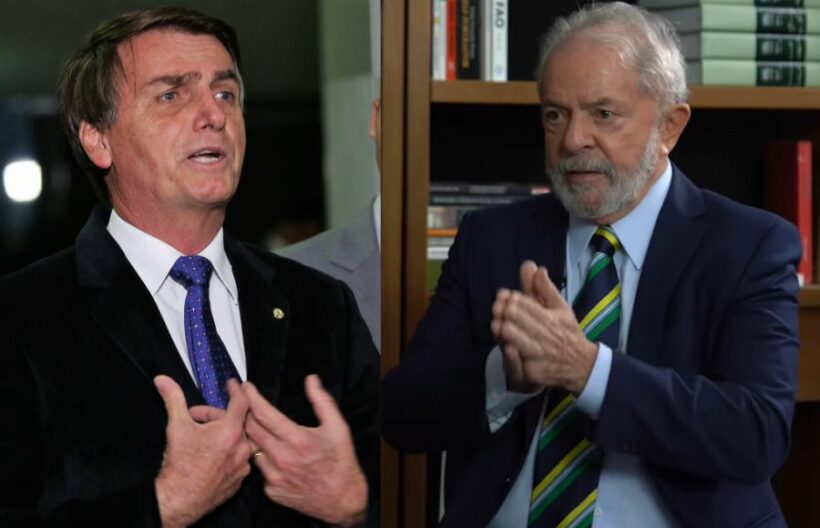It is common to hear that Brazil is a country with strong democratic characteristics, but the truth could not be further from this. With a past of military dictatorship, Brazil only became a democratic republic in 1985. Since this democracy is so recent, it is still fragile.
By Lu Evans
We can take the recent presidential election as an example of this fragility. Luis Inácio da Silva, best known as Lula, got 50.90% of the valid votes, according to the official site of the Brazilian Electoral Court, becoming the first Brazilian president to govern for three terms. Jair Bolsonaro, the current president, got 49.10% and became the first president to fail to get re-elected in Brazil.
Predicting his defeat, Bolsonaro, even before the people went to the polls, pointed to probable electoral fraud, and showed concern about not staying in power, saying that there were only three options for him: victory, death, or prison.
After his defeat, he did not concede. During his short speech, he thanked his voters and inflamed his supporters.
“The current popular movements are the result of indignation and feeling of the injustice of our electoral process.”
Let’s compare both presidents.
Jair Bolsonaro is a retired military who became a politician in 1989 and built his career defending military interests and anti-democratic ideas.
He attracted media attention in 1999 when he exposed his totalitarian discourse in an interview for “Câmera Aberta”, Bandeirantes TV. During the interview, he defended torture, tax evasion, the closing of the Congress, civil war, and shooting politicians, like the then-president of the Republic, Fernando Henrique Cardoso. In 2016, in a video interview with the New York Times, he said he would have no problem eating native Brazilians.
When Jair Bolsonaro began planning his presidential campaign, he promoted events in several states and used the internet to spread disinformation and conspiracy theories.
In 2018, Lula, who was leading in the polls for that year’s presidential election, was arrested for money laundering. Bolsonaro, who was in second place, moved to first, receiving 55% of the valid votes and becoming president.
After his victory, he appointed the federal judge Sergio Moro, who convicted Lula, as justice minister. This appointment sparked questions about Moro’s political motivation in jailing Lula.
Bolsonaro had many lower points in his government, such as the anti-mask and anti-vaccine campaign during the pandemic, the use of ineffective drugs like chloroquine to cure Covid, and the delay in buying vaccines for the people. At least 700,000 Brazilians died of Covid. During his government, the deforestation of the Amazon forest was the largest in history. To get an idea, in 2021 alone, the deforested area in the region was 531.74 km², larger than the total area of Tulsa, OK. Another not very popular measure was the so-called secret budget, used by ministries to distribute money difficult to be tracked to benefit politicians aligned with the government’s agenda. There is also the 100-year secrecy, a measure that protects information about the actions of the president, his sons, and associates.
Luiz Inácio da Silva (Lula) is a former metalworker, trade unionist, and politician affiliated with the Workers’ Party.
During the military dictatorship, he led major strikes among workers. Lula was one of the leaders of the “Diretas Já” a democratization movement.
He was the president between 2003 and 2011, consolidating many social programs and undertaking radical reforms and changes that produced social and economic transformations in Brazil, accumulating substantial international reserves. Poverty, inequality, illiteracy, unemployment, infant mortality, and child labor rates fell significantly, while the minimum wage and the average worker’s income had real gains. People had more access to school, university, and health care. His foreign policy activities included measures to reduce global warming and strengthen the Mercosur.
As well as being one of the most popular politicians in the history of Brazil, Lula was also one of the most popular across the globe. In 2010, the United Nations awarded Lula as the “World Champion in the Battle Against Hunger” in recognition of his leadership in the fight against hunger and inadequate nutrition in Brazil.
But in 2017, he was charged and convicted of money laundering, losing his political rights, and going to prison. But in 2022, The Brazilian Supreme Court reinstated Lula’s political rights by considering that the investigation and his prosecution violated his right to be tried by an impartial tribunal.
In his post-election speech, Lula promised to work for all Brazilians and also talked about his conviction, “They tried to bury me alive.”
Brazil after Bolsonaro
As the newly elected president, Lula will be taking over a very different country than it was between 2003 and 2010. Global recession, debt, and lack of resources are some of his challenges.
Left-wing Brazilians who voted for Lula expect crucial reforms. He promised to combat hunger, social inequality, and inflation, resume investments in infrastructure and housing, fight corruption, defend civil rights, strengthen the social assistance and the public health care systems, invest in education, and protect the Amazon from environmental crimes.
But before assuming the presidency in January 2023, Lula will have to face the right-wing voters spreading misinformation, causing chaos, and trying to prove that Bolsonaro won the elections. Does it sound familiar?
Lu Evans was born in Brazil, but became an American citizen more than a decade ago. She is a journalist and writer who is currently studying Anthropology at Central New Mexico College.






